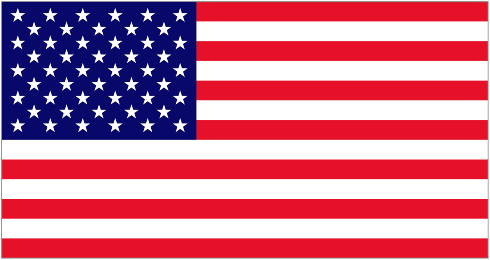I just read a profoundly insightful editorial-article in Time promoting the teaching of the Bible in public schools. The basic premise of this article is that:
"Simply put, the Bible is the most influential book ever written. Not only is the Bible the best-selling book of all time, it is the best-selling book of the year every year. In a 1992 survey of English teachers to determine the top-10 required "book-length works" in high school English classes, plays by Shakespeare occupied three spots and the Bible none. And yet, let's compare the two: Beauty of language: Shakespeare, by a nose. Depth of subject matter: toss-up. Breadth of subject matter: the Bible. Numbers published, translated etc: Bible. Number of people martyred for: Bible. Number of wars attributed to: Bible. Solace and hope provided to billions: you guessed it. And Shakespeare would almost surely have agreed. According to one estimate, he alludes to Scripture some 1,300 times. As for the rest of literature, when your seventh-grader reads The Old Man and the Sea, a teacher could tick off the references to Christ's Passion--the bleeding of the old man's palms, his stumbles while carrying his mast over his shoulder, his hat cutting his head--but wouldn't the thrill of recognition have been more satisfying on their/own?"
In other words, the Bible is one of the foundations of Western culture. And even taken from a purely literary and non-religious viewpoint, its impact on the growth of the culture that we all know and (mostly) love supercedes any other single piece of literature in the world. Sure, one could attribute plenty of wars and suffering directly to the Bible or interpretations of the Bible, but its impact on society has been a mostly positive one. Shakespeare essentially started modern literature, and has remained of utmost importance for hundreds of years; but the Bible has remained at the root of most of Western culture for thousands of years. Yet it would be hard to be processed through the public education system without reading one or two Shakespearean plays, and even harder to find an educationally sound teaching of the Bible.
The lessons it teaches are mostly good ones, too. After all, what completely sane secular philosopher would disagree with “Thou shalt not kill” or “Thou shalt not steal”? John Locke’s Social Contract, arguably the philosophical basis of the American government, said that the rights to life, liberty, and property – two of which (life and property) are central to the Bible – are self-evident and inalienable. Even Ayn Rand, Mrs. Objectivism and Selfishness, said people were not means to ends (in other words, although it’s important to be selfish, you shouldn’t take it to the extent that it harms other people). The Bible is the single greatest philosophy and morality handbook ever written, and, whether you like it or not, has at least an indirect influence on the vast majority of laws in the Western world. If Locke and Rand are crucial to a good education in philosophy, then why aren’t Matthew and Paul?
The Bible is also quite historically accurate. In many cases, it’s the most reliable historical source that exists about an event. It documents the entire history of a people – the Israelites – who rank up with the Greeks and Romans in terms of influence on our culture. If some form of ancient world history is a curriculum requirement, then shouldn’t the Bible be part of that? I know for a fact from my own experience that ancient history is the 6th grade Social Studies class in my school district, and is therefore required. As I recall, there was one section (a few pages) on Christianity, while there were whole chapters on cultures so distant to us as ancient Egypt and Mesopotamia. There is clearly a problem here.
This Time article suggests that Biblical literacy classes ought to be offered in every school district’s high schools. It says that this can be done without trampling on the separation of church and state. After all, as the article says, in the Supreme Court decision that removed prayer and explicit religious teaching from schools (the 1963 Abington Township School District v. Shempp decision):
“[T]he exemption for secular study of Scripture was explicit and in the majority opinion: "Nothing we have said here indicates that such study of the Bible or of religion, when presented objectively as part of a secular program of education, may not be effected consistently with the First Amendment," wrote Justice Tom C. Clark. Justice Arthur Goldberg contributed a helpful distinction between "the teaching of religion" (bad) and "teaching about religion" (good).”
It is, therefore, possible to teach the Bible in school without going against the establishment clause. This same conclusion has always been accepted for other religions – schools teach about ancient Greek, Roman, Egyptian, and Eastern religions in Mythology courses.
But I see a lot of potential danger in creating a class that teaches about the Bible. Even if the class’s course outline dictates that it must be taught neutrally and without any preaching, I can imagine some difficulty in finding a teacher at every high school in the nation willing to do so. There would undoubtedly be cases in which a teacher would go too far in the “teaching about religion” and lapse into the “teaching of religion.” That is simply unacceptable – every student has the right to be in any class without being preached to.
The Bible also would also be out of place in a Mythology class. To be sure, the Bible, for the most part, would fit. It is a historical account with religious overtones, just like the vast majority of mythology. But there are two crucial distinctions: Firstly, the Bible is more historically accurate than most mythology. Secondly, the Bible is still believed in by a lot of people. While there aren’t many people in the world who would object to something like the Iliad being called a myth, there are billions of people in the world who would object to Genesis being called a myth. So the Bible can’t be taught as mythology.
The answer, I think, is to incorporate elements of the Bible where they fit into the established curriculum. Literature teachers should teach about the Bible’s literary significance. History teachers should teach about its historical significance. Philosophy teachers can teach about its moral and philosophical teachings. Mythology teachers, even, can incorporate it into their classes – as long as they’re careful not to explicitly call it a myth – and show students how similar the myths that they’re learning are to the Bible. This would all put the Bible into a proper educational context, whereas teaching it as a standalone class would not. It would also make it less likely for a teacher to turn their classroom into a Sunday school, as they would only be teaching the Bible in the context of their chosen area of expertise.
I am not a Christian. I do not consider the Bible to be a holy book, and it is not my moral compass. I would, therefore, be one of the first people to denounce something that goes against the First Amendment’s establishment clause. Secular teaching of the most important piece of literature in Western culture, however, does not do so. There is a thin line between teaching and preaching, to be sure, but I have faith in a teacher’s ability to secularly present the Bible as part of a course they’re teaching. Students would benefit form a greater understanding of the religious and social debates of the day, and if it led indirectly to more conversions to Christianity, then so what? The First Amendment, after all, says, “Congress shall make no law respecting an establishment of religion, or prohibiting the free exercise thereof.” So let’s shape up, and get the Bible on that list of the top ten required readings in high school.
The Time article can be found here.
Subscribe to:
Post Comments (Atom)





1 comment:
Good job. You discuss all the reasons that everyone should know more about the Bible, and, on the other hand, the many problems resulting from any attempt to teach it in public schools.
I think probably the only way it can be taught is in literature classes, where it can be studied both for the drama of the original Biblical stories and the beauty of the English translations. As you mention, ignoring the Bible when you study English literature is like ignoring Shakespeare.
If we tried to teach it as part of history, there would be a constant battle as to whether each story was intended as allegory or straight history.
I'm impressed by your entire article -- you really covered a lot of bases in your discussion.
Post a Comment